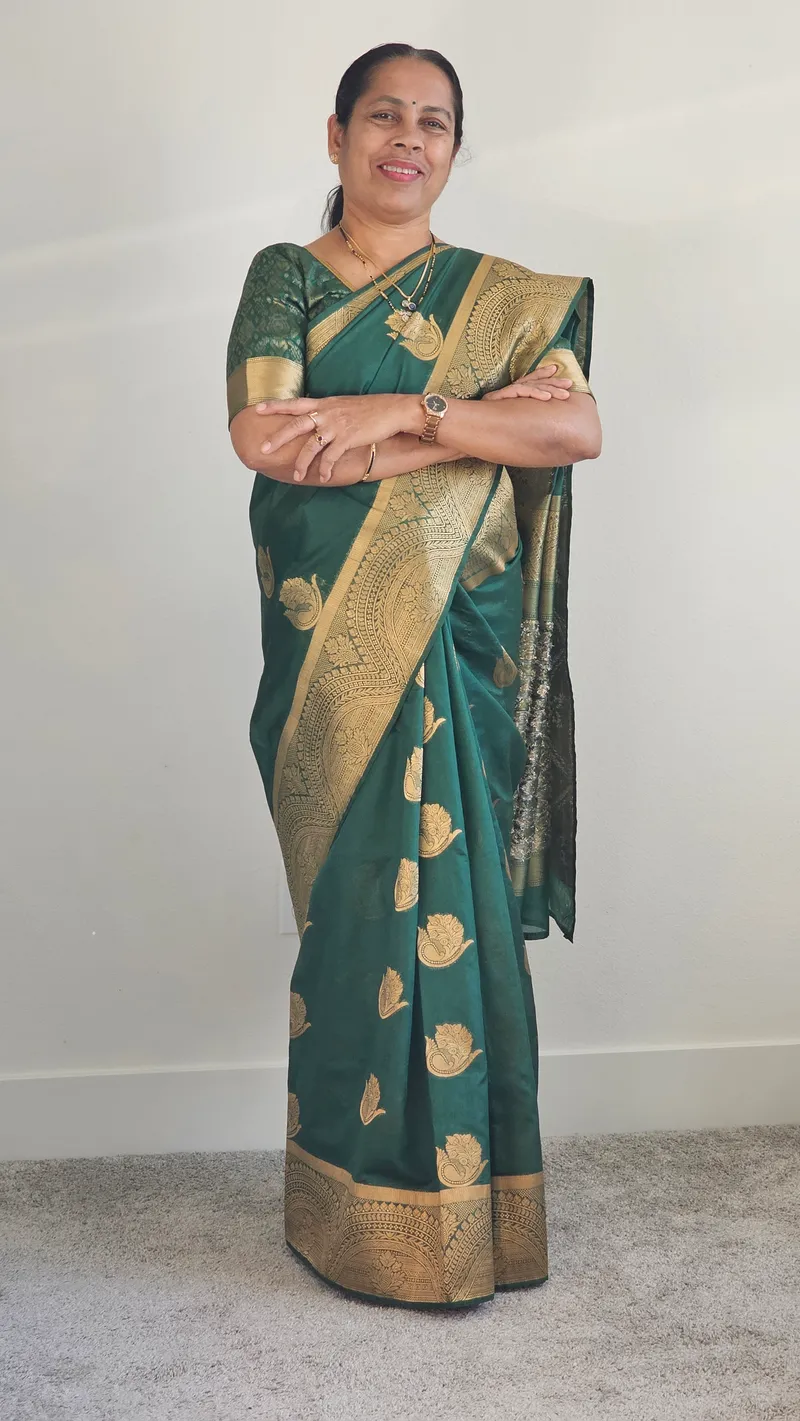Meet Nilima Pradeepkumar Rane, a nurse from Goa who is a finalist at the prestigious Aster Guardians Global Nursing Award
With a nursing career spanning over 37 years, Nilima Pradeepkumar Rane has advocated for nurses’ rights and led different initiatives in healthcare. She is one of the 10 finalists of the Aster Guardians Global Nursing Award, which carries a prize money of $250,000.
Aster DM Healthcare has unveiled the top 10 finalists for the third edition of the Aster Guardians Global Nursing Award—a platform that recognises and celebrates the contributions of nurses all over the world.
The award follows a stringent review process run independently by Ernst & Young LLP, along with an expert jury and a grand jury. The finalists this year have been shortlisted from 78,000+ applications from nurses from over 202 countries.

Nurse Nilima Pradeepkumar Rane
The winner will be announced at a gala event to be held in Bengaluru in December this year. Last year, nurse Margaret Shepherd from the United Kingdom won the grand title award of $250,000.
Among the finalists this year is Nilima Pradeepkumar Rane from Goa. Rane has served in the healthcare sector for over 37 years and was associated with the Goa Medical College and Hospital as assistant matron. She is currently the president of the Nursing Association Goa State Branch and a member of the Indian Nursing Council.
Growing up in Canacona, Goa, Rane was inspired to become a nurse after volunteering at a health camp where she saw firsthand how nurses worked with doctors to help patients. She then pursued a general nurse midwife course at the Government Nursing School in Panjim, followed by a BSc degree in nursing from IGNOU. She started her career as a staff nurse at Goa Medical College and Hospital, and eventually retired as assistant matron.
“My initial days were both humbling and challenging. As a staff nurse at Goa Medical College and living in the nurses’ hostel, basic necessities like food, water and electricity were sometimes hard to come by. I remember my first salary being Rs 717 after deductions. Despite the challenges, I felt a deep sense of purpose,” Rane tells HerStory.
Throughout her 37-year career, Rane has experienced remarkable highs and challenging lows. One of her proudest moments was receiving the Florence Nightingale National Award in 2008, the first Goan nurse to do so.
“Another significant achievement was gathering 3,000 signatures from nurses and presenting them to the chief minister (of Goa) to push for better salary structures and working conditions. This resulted in tangible improvements. On the flip side, the long tedious process of advocating for nurses’ rights has tested my patience but strengthened my resolve,” she says.
Rane helped establish the Goa Nursing Council in 2014.
Through her efforts, new accredited nursing schools were created, increasing the number of qualified nursing professionals annually and enhancing educational prospects for aspiring nurses in Goa. In her personal capacity, she also petitioned to the Public Health Department advocating for study leave for nurses pursuing part-time graduate and post-graduate degrees in nursing.
She also spearheaded initiatives to improve biomedical waste segregation by implementing colour-coded bins, reducing food waste, and ensuring the provision of safety gear.
Rane has been actively involved in enhancing nursing education through various workshops on the application of international best practices to the local healthcare context, updates on HIV/AIDS, and staff nurse training.
She collaborated with the Goa Government on the Baby-Friendly Hospital Initiative, launched by UNICEF and WHO to promote breastfeeding. She organised workshops to educate student nurses on the nutritional benefits of breast milk, effective breastfeeding techniques, and communication strategies to address societal misconceptions. She also partnered with doctors and nurses to educate communities about the risk factors and prevention of ischemic heart disease.
While nursing is considered a noble profession, a number of Indian nurses aspire to move abroad. Rane admits that the profession has historically faced challenges in terms of recognition and compensation.
“While nurses work tirelessly, often under demanding conditions, the pay and benefits haven’t always matched the dedication they bring to their roles. This has led some nurses to seek opportunities abroad, where they are offered competitive salaries, career growth, and a more balanced work-life environment,” she says.
However, she believes there have been positive strides in recent years to improve the situation.
“The increasing awareness of the value of healthcare workers and ongoing efforts to improve working conditions and pay are steps in the right direction. With continued investment in the profession and recognition, nursing in India has the potential to thrive, offering young talent rewarding opportunities both at home and abroad,” she says.
Rane points out that to encourage more young people to pursue nursing, several key areas have to be addressed.
“Increasing salary packages and improving working conditions will make the profession more attractive. Offering clearer career growth opportunities, including post-graduate studies and specialisation options, will help retain talent.
“We need to make nursing education more accessible in India; the increase in nursing schools and the availability of undergraduate and postgraduate programmes in Goa is a major positive step. Empowering nurses by involving them in decision-making processes and ensuring their contributions are acknowledged in policy discussions will inspire others,” says Rane.
Edited by Swetha Kannan



![[YS Exclusive] SquadStack debuts AI-driven CX platform featuring humanoid AI agent](https://images.yourstory.com/cs/2/fe056c90507811eea8de27f99b086345/CopyofNewPPTTemplates-2025-03-05T190037-1741181509927.jpg?mode=crop&crop=faces&ar=16%3A9&format=auto&w=1920&q=75)



